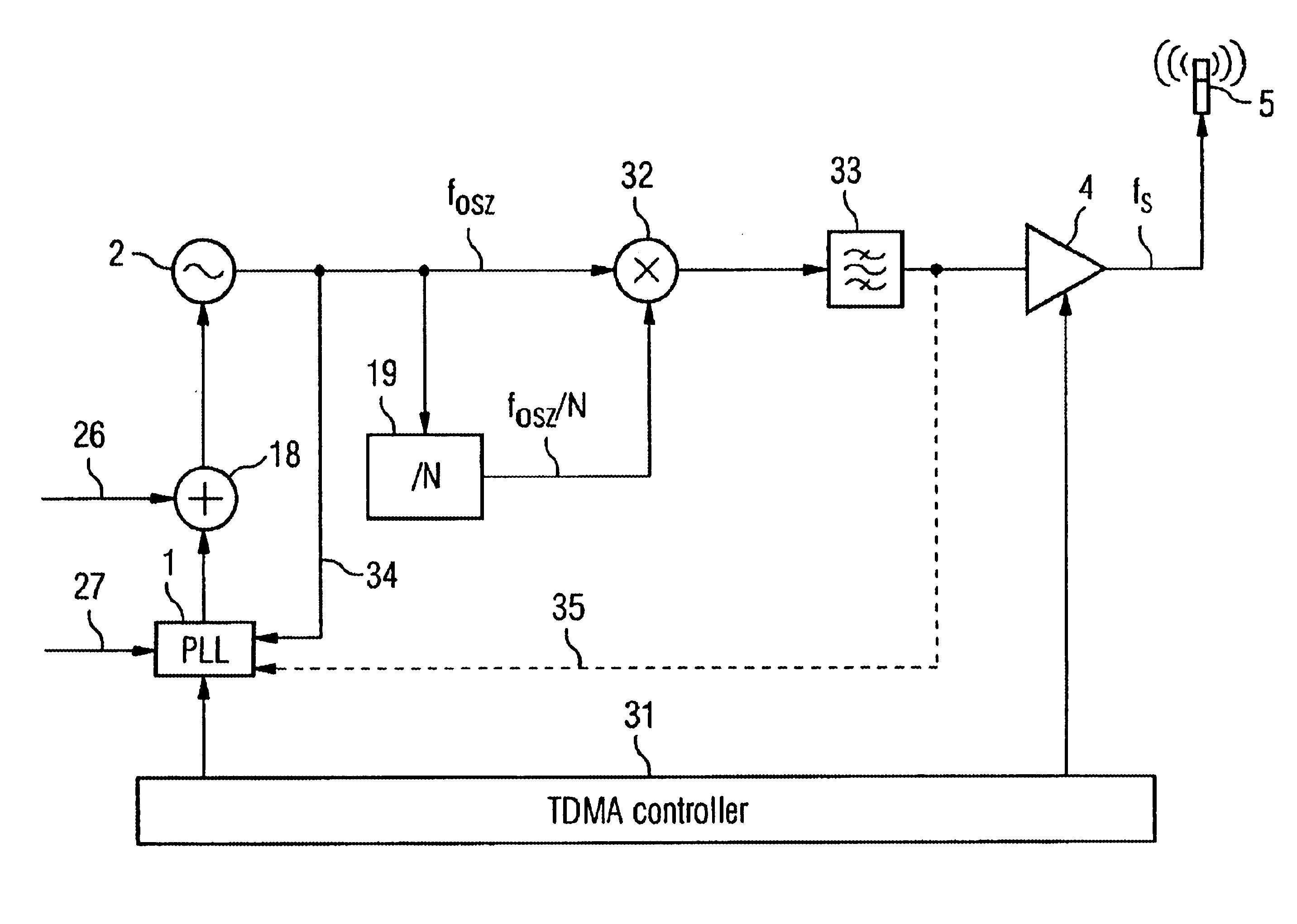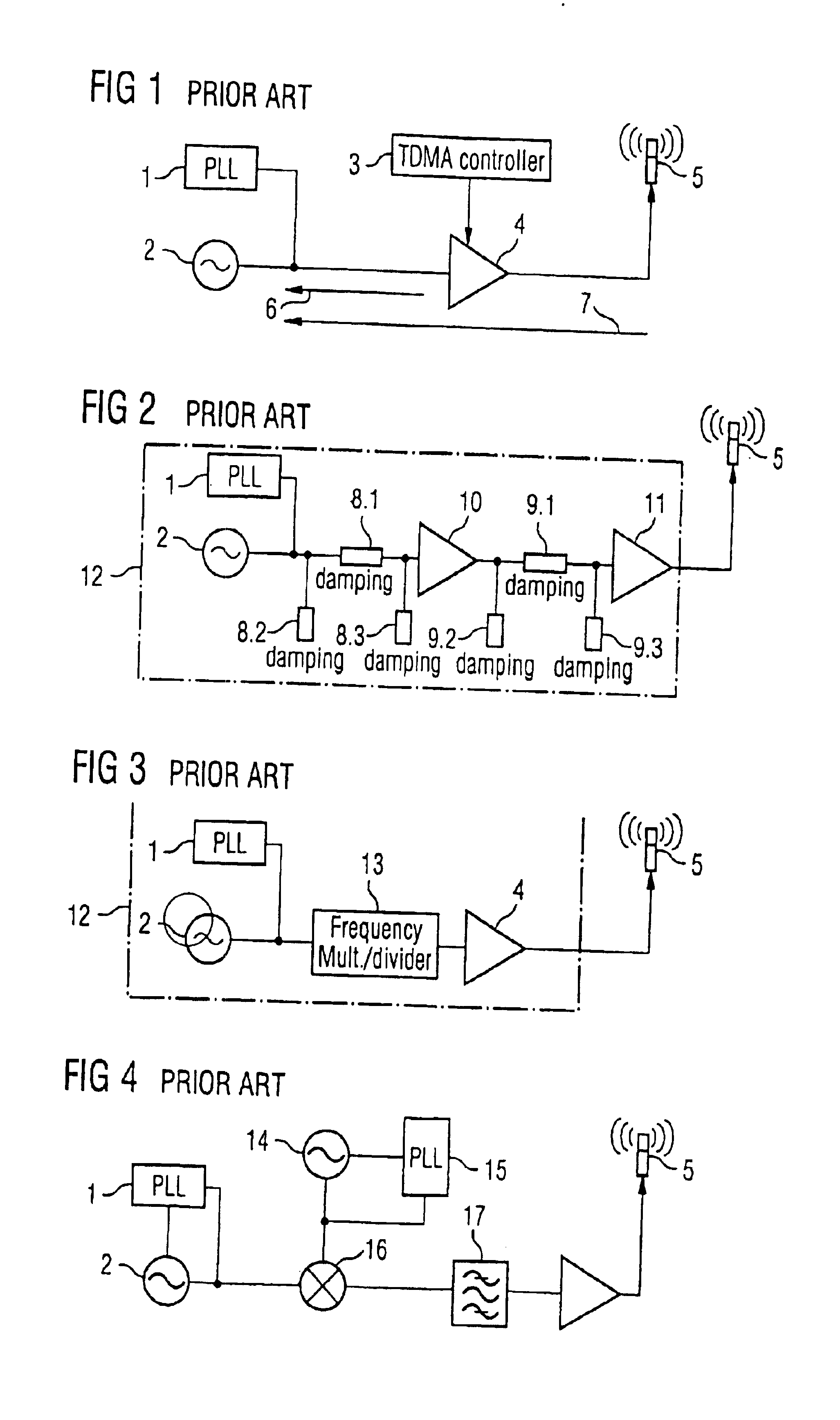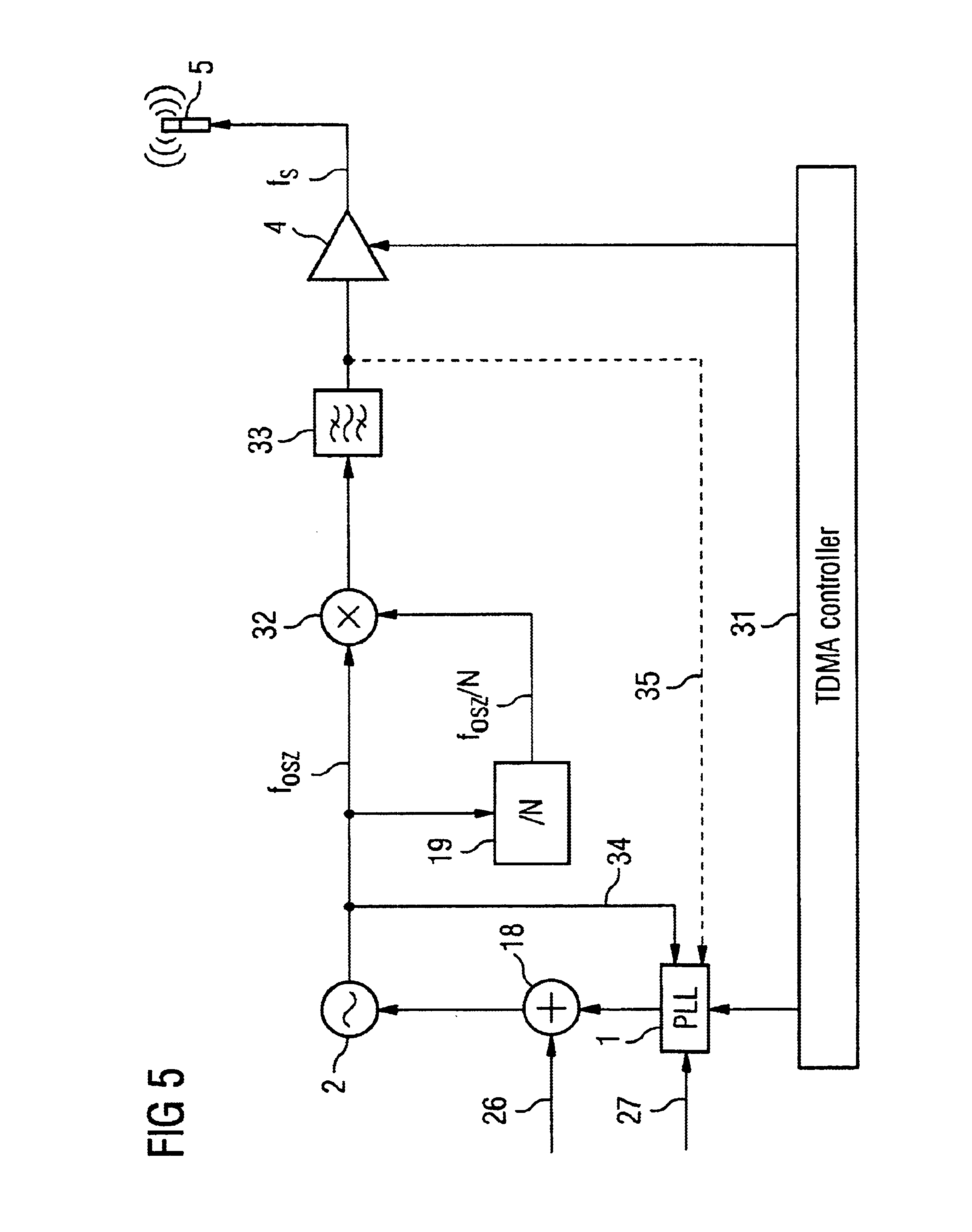TDMA transmit frequency generator suppressing frequency jumps caused by feedback
a technology of transmit frequency and feedback, applied in the direction of pulse generator, pulse manipulation, pulse technique, etc., can solve the problems of large effect, undesired frequency jump generation, and disruption of frequency generation, and achieve the effect of high integration density of circuits and cost-effective manufactur
- Summary
- Abstract
- Description
- Claims
- Application Information
AI Technical Summary
Benefits of technology
Problems solved by technology
Method used
Image
Examples
Embodiment Construction
Reference will now be made in detail to the preferred embodiments of the present invention, examples of which are illustrated in the accompanying drawings, wherein like reference numerals refer to like elements throughout.
FIG. 1 shows a known circuit for a TDMA radio system with an oscillator 2 and a PLL circuit 1 for generating a frequency which is as stable as possible, a TDMA controller 3 of a transmitting amplifier 4 and an antenna 5.
In this circuit, at the moment of the switching on of the transmitting amplifier 4, the generation of frequencies is disrupted owing to a load change and / or effects—indicated by the arrows 6 and 7—and an undesired frequency jump is produced. The load change occurs during the switching on of the transmitting amplifier 4 as a result of the change in its input impedance.
Effects on the frequency generating components are produced as a result of the irradiation by the antenna 5, or by other coupling paths (not illustrated here) between the transmit outpu...
PUM
 Login to View More
Login to View More Abstract
Description
Claims
Application Information
 Login to View More
Login to View More - R&D
- Intellectual Property
- Life Sciences
- Materials
- Tech Scout
- Unparalleled Data Quality
- Higher Quality Content
- 60% Fewer Hallucinations
Browse by: Latest US Patents, China's latest patents, Technical Efficacy Thesaurus, Application Domain, Technology Topic, Popular Technical Reports.
© 2025 PatSnap. All rights reserved.Legal|Privacy policy|Modern Slavery Act Transparency Statement|Sitemap|About US| Contact US: help@patsnap.com



